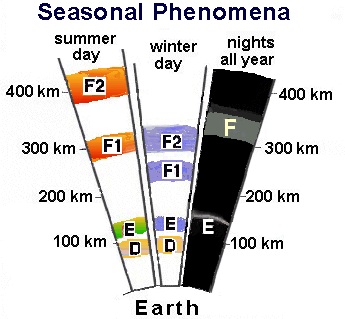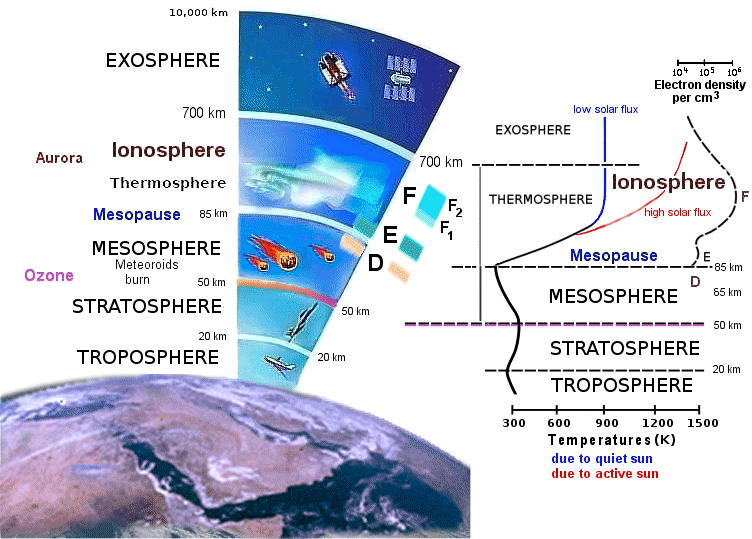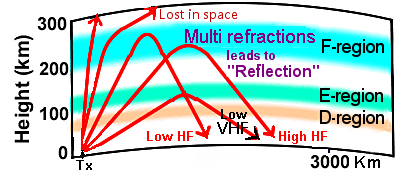
 How do the seasons affect HF radio propagation? ↗
How do the seasons affect HF radio propagation? ↗
Seasonal changes in the Earth's ionosphere significantly influence HF radio propagation, as shifts in ionospheric conditions alter how radio waves travel through the atmosphere.
Figure 1 illustrates the increase in the height of the F2 region in the summer. This may result in chages of the MUF and the ability of that region to refract radio waves due to falling free electron density. Additionally, the D region's height remains stable while absorbing more ionizing radiation, leading to increased absorption and a higher LUF. As a result, HF band conditions above 10 MHz are better in the summer and near the equator, while bands below 10 MHz are better in the winter and at mid-latitudes.- Summer: During the summer the sun shines for more hours and at a higher angle. Therefore, the ionosphere is higher and denser (having more free electrons). This can result in better HF propagation during the day, especially on higher frequency bands.
- Winter: In winter, the ionosphere is lower and less dense.
This can lead to better nighttime propagation on lower frequency bands. - Spring and Fall: These transitional seasons exhibit intermediate behavior.
Overall, the ionosphere is often more ionized during the summer, allowing it to more efficiently refract HF radio transmissions. As a result, radio waves can travel farther in the summer. In winter, however, the ionosphere is less ionized, due to the decrease in sunlight hours, making it less effective at transmitting HF radio signals.
What is the ionosphere?
The ionosphere is a layer of the Earth's atmosphere that includes charged particles and is critical for high-frequency radio propagation.
How do the ionosphere affect HF radio propagation?
The ionosphere refracts HF signals back to Earth, enabling long-distance communication.Read more about seasonal variations of ionospheric regions.
shows near-real-time indices and explains what the terms mean.


